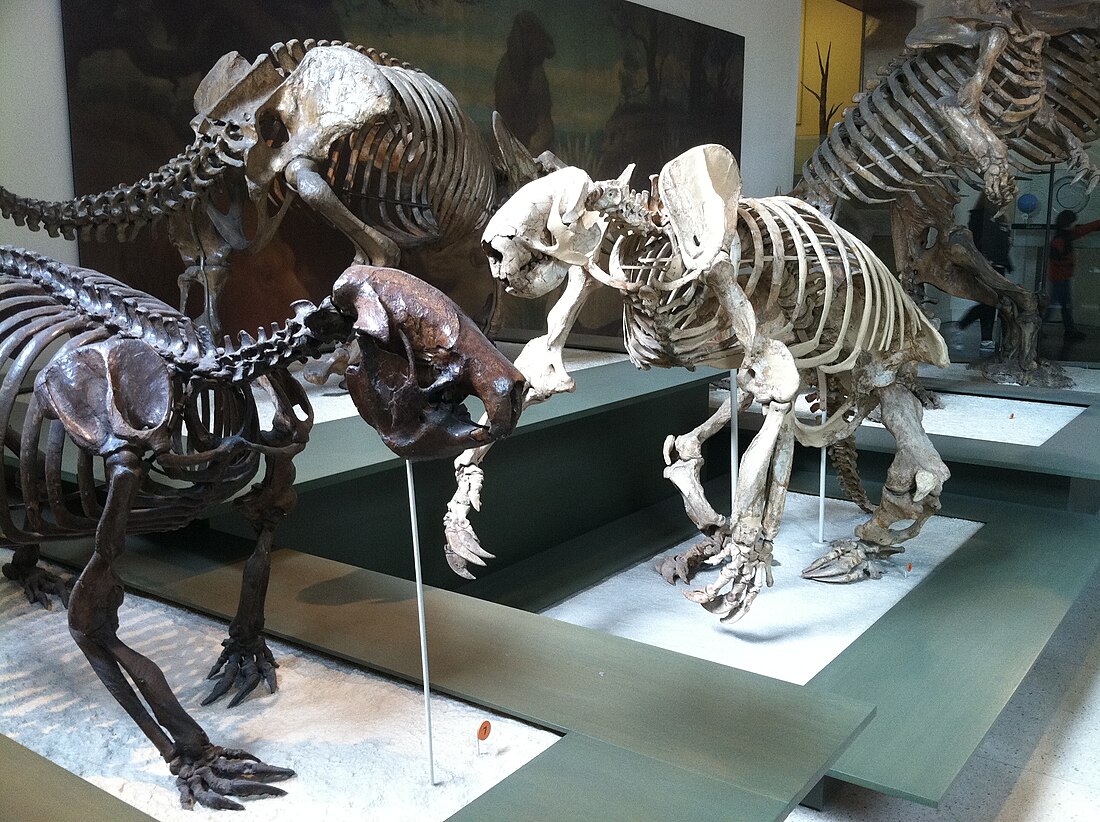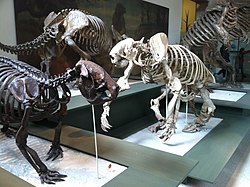Ground sloth
informal group of mammals (fossil) From Wikipedia, the free encyclopedia
Remove ads
Ground sloths are a group of extinct large sloths in the mammalian superorder Xenarthra. The much smaller living sloths are called "tree sloths".

University of Texas at Austin
The last surviving ground sloths lived in the Caribbean Antilles. Megalocnus may have survived until about the third century BC in Cuba.[1] By then ground sloths had been extinct on the mainland of North and South America for 10,000 years or more.[2] They survived on Caribbean islands because humans got to the islands much later. Some island sloth populations lived 5,000-6,000 years later than their continental mainland relatives. This fits the pattern of Holocene extinction of large vertebrates due to human dispersal. In other words, they were probably hunted or otherwise so affected by humans that they were unable to survive.[3]
Most ground sloth evolution took place during the mid to late Tertiary of South America while the continent was isolated.[4] At their earliest appearance in the fossil record, the ground sloths were already quite distinct. The presence of islands between the American continents in the Miocene allowed some to get into North America.
Ground sloths were a hardy group: their numbers and dispersals into remote areas are evidence of this. Remains have been found in parts of Alaska.[5][6]
Sloths, and xenarthrans as a whole, were one of the more successful South American groups during the Great American Biotic Interchange. In general, during the interchange, many more taxa moved from North America into South America than in the other direction. However,at least five genera of ground sloths have been identified in North American fossils. These are examples of successful migration to the north.
Remove ads
Typical examples
References
Wikiwand - on
Seamless Wikipedia browsing. On steroids.
Remove ads

